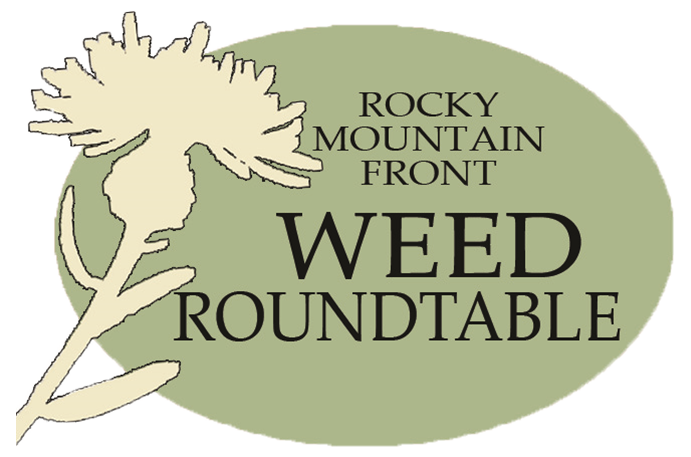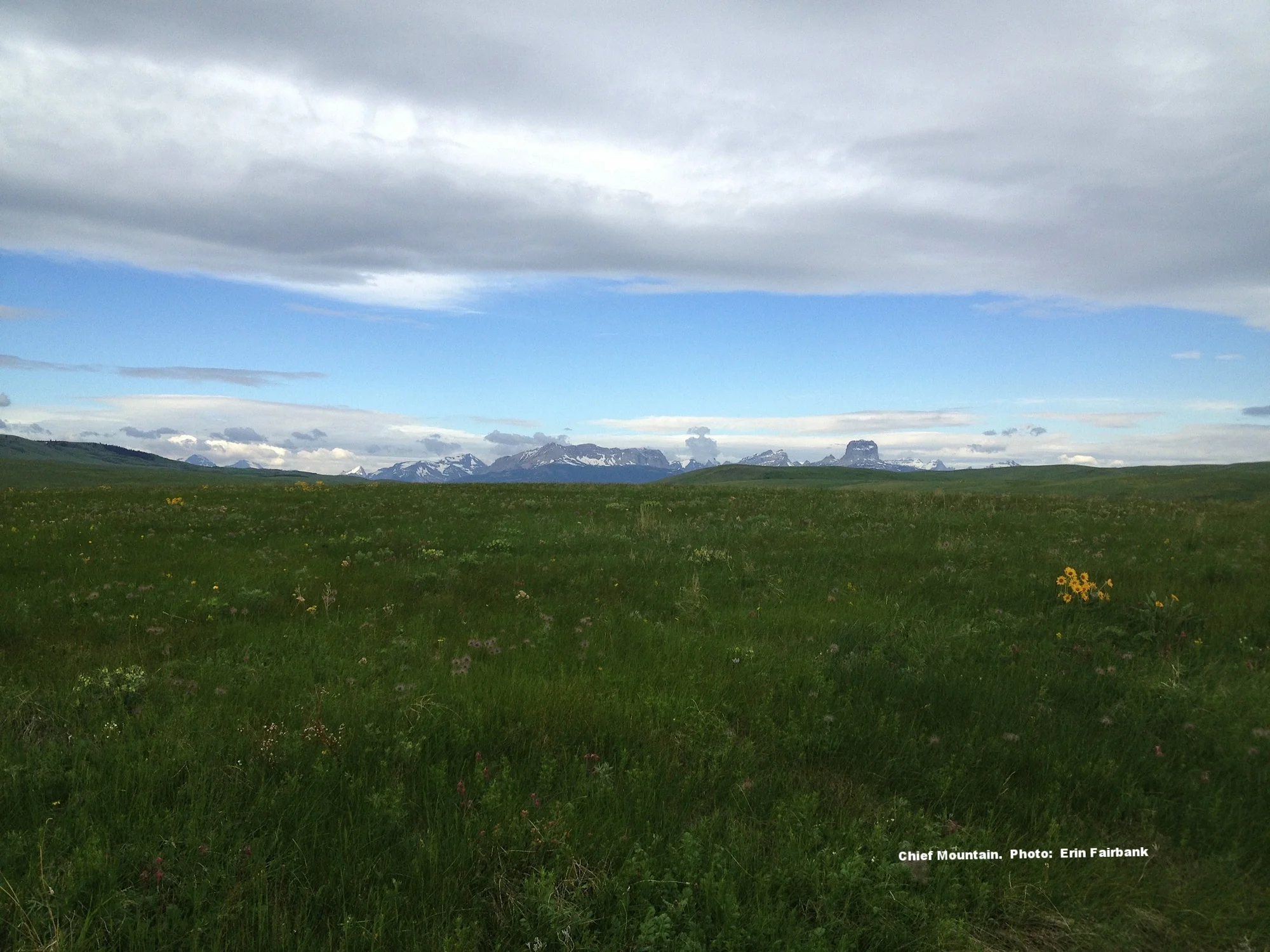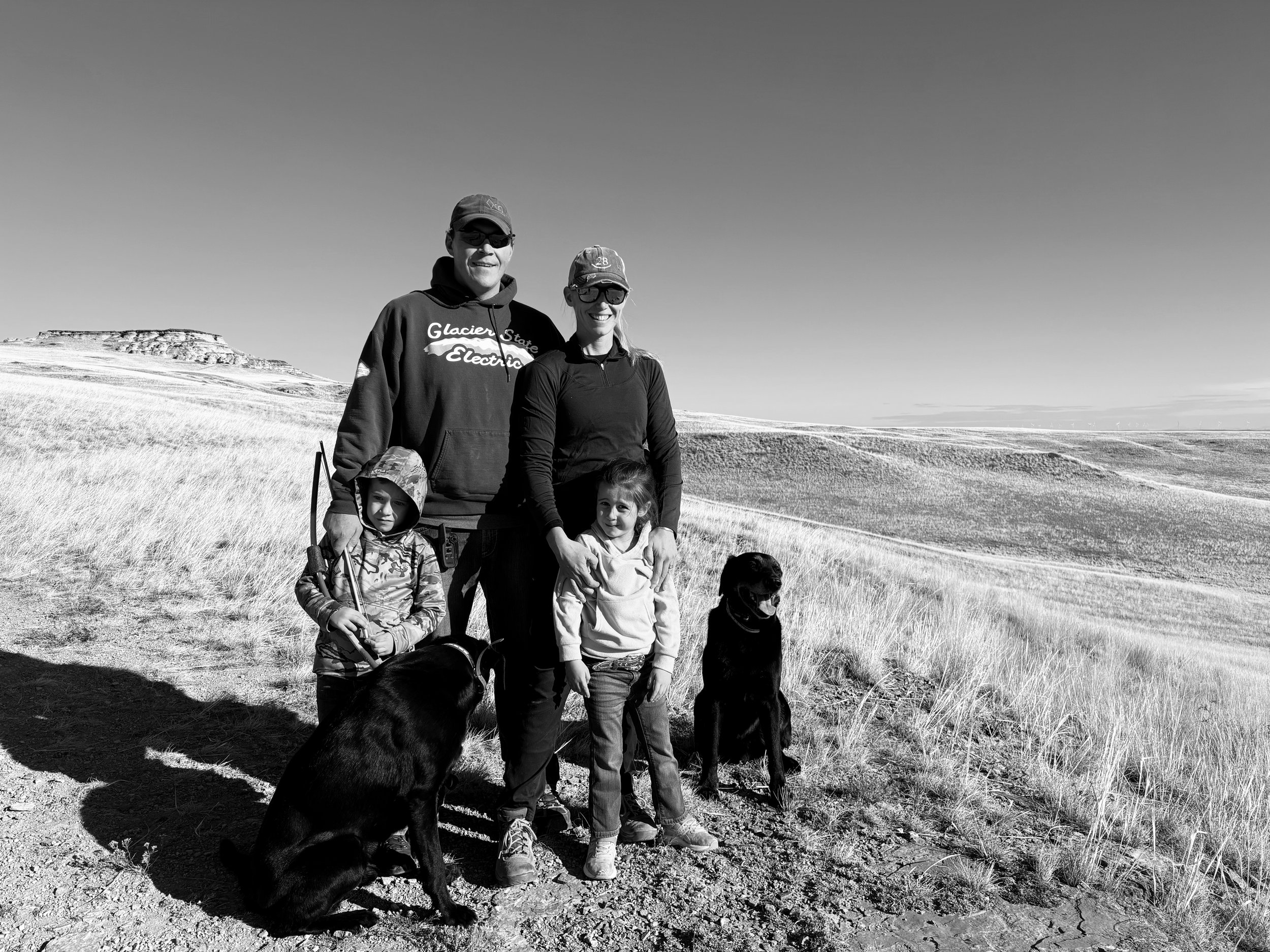Staff & Board
Coordinator
Becca Dellwo was hired as a part time Coordinator for the Rocky Mountain Front Weed Roundtable in the spring of 2023. Becca moved to Choteau in 2020 with her husband, a son, a daughter and 2 black labs. Her husband grew up west of Bynum along the Rocky Montana Front. Becca teaches 7-12 science full time during the school year. Her past employment includes Agricultural Analytical Monitoring, Conservation Education and Weed Management. She hopes to continue the Roundtable’s successes in invasive species management along the Front in a way that focuses on community engagement and collaboration. If she isn’t teaching curious minds or out tackling weeds projects, you’ll find her outside with her family hiking, hunting, skiing, or ranching on the Front.
If you have any questions, comments or concerns, please reach out to Becca at: Noxious.weeds@gmail.com
Learn more about our work:
Board of Directors
Mark Korte , Chair -Teton County Weed Coordinator
Luke Coccoli Vice Chair - TRMR Boone and Crockett
Diane Gollehon, Treasurer - Teton County Landowner, CPA
Will Dewey, Secretary - Former RMFWR employee, Landowner
Pam Converse, Member - Pondera County Weed Coordinator
Jenn Swanson, Member - Teton County Extension Agent
Andrew Pettibone, Member - US Fish & Wildlife Service
Jim Olsen, Member - US Forest Service
Paul Wick, Member - Landowner
Erin Fairbank, Member - Biologist
Dawn LaFleur, Liaison - Glacier National Park
Steve Smith, Liaison - Bureau of Land Management
Tracy Wendt, Liason - Sun River Watershed Group
Brent Lonner, Liason - FWP Biologist
Our Story
In early 2000, landowners and key agency personnel from the Helena National Forest and US Fish & Wildlife Service, along with local watershed groups and weed districts, began to talk to one another about threats both to the ranching economy and wildlife and habitat posed by noxious weeds. At the time, uncoordinated weed control efforts were largely ineffective and fingers were pointed across fencelines. Out of these talks grew the first drainage-based spray and weed pull days, initially in the Dearborn, Sun, and Teton drainages.
It was collaboration that ultimately began what is now the award-winning Rocky Mountain Front Weed Roundtable, a group that has evolved substantially since its early days:
• 2004 – Signed original MOU among Roundtable partners
• 2005 – Hired first part-time Coordinator
• 2008 – Expanded project area into nine primary drainages
• 2010 – Acquired non-profit 501(c)3 status
• 2013 – Hired first full-time Executive Director
• 2015 – Approved 3-year Operational Plan
• 2016 – Completed NRCS Conservation Innovation Grant
• 2017 – Completed UAV Weed Mapping Pilot Project
2023-National Fish & Wildlife Foudation Grant Complete
The Weed Roundtable’s project area now encompasses approximately 3-million acres which includes the entire Rocky Mountain Front and surrounding lands, 9 primary drainages and numerous rural communities from the Canadian border south to the Dearborn River, west to continental divide and east to highways 89/287. It includes private, state, and federal lands; and portions of the Blackfeet Indian Reservation, Glacier National Park, and the Bob Marshall Wilderness. This complex mix of landownership and stewardship along the Front generates a critical need for coordination of noxious weed management.
The Weed Roundtable is now the single galvanizing force on the Front, coordinating public and private weed managers. The driving commonality of this dedicated group is to benefit the natural and local economic resources of the Rocky Mountain Front, home to iconic wildlands, ranchlands, and a national park.
In addition to drainage-based spray days and community weed pulls, we now manage a robust, landscape-wide biological weed control project, integrated into the Roundtable’s overall weed management efforts. Biological controls are a proven, cost-effective, and environmentally compatible means of managing weeds.
Due to the Roundtable’s efforts, millions of beneficial insects have been released and monitored along the Front. Since 2004 the Roundtable has released more than 1,000,000 leafy spurge flea beetles were collected from field insectaries along the Front and over 23,000 knapweed root-boring weevils were purchased and distributed across our project area. Over 150 volunteers sprayed, pulled, and learned about noxious weeds at 10 cooperative events. At the first annual Teton Weed Pull in 2005, 1473 pounds of knapweed was pulled; over 15 years later less than 100 pounds was pulled showing a marked reduction in weed infestation and that consistent management is key!
The Weed Roundtable also has been the central funding entity for weed management, including a four-year, $220,000 Conservation Innovation Grant (CIG), a research-based effort to establish economically viable weed management. The CIG project has influenced a key cadre of landowners to use effective weed management on over 117,000 acres that, in turn, will enhance the resiliency of native plant communities vital for the local ecology and economy. A noxious weed database for extensive tracking of weed information has also been a much-needed achievement.
NFWF from other page
The outcomes of the CIG and NFWF projects have been shared with weed managers across the region, and thereby provide adaptive management to others based on learning from the grant outcomes.


